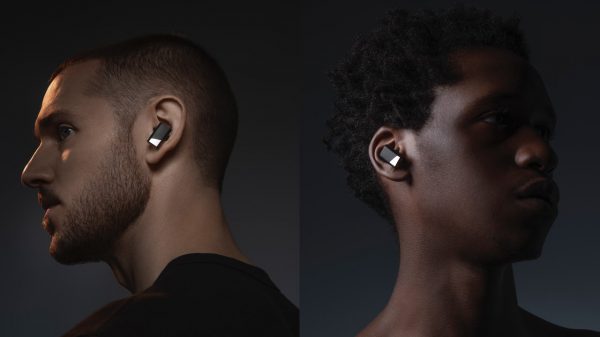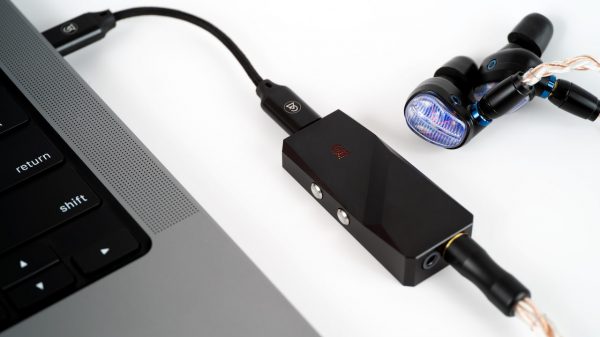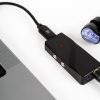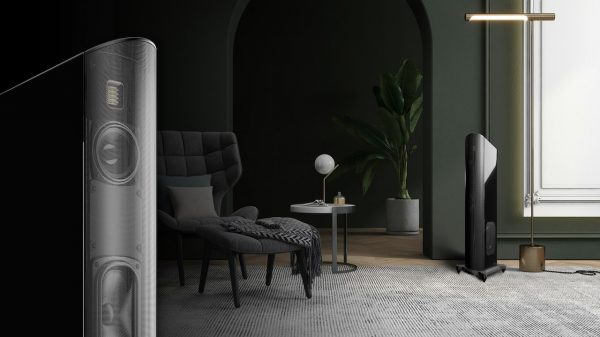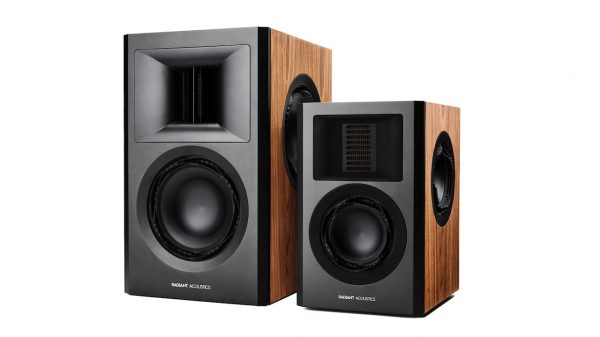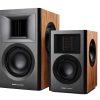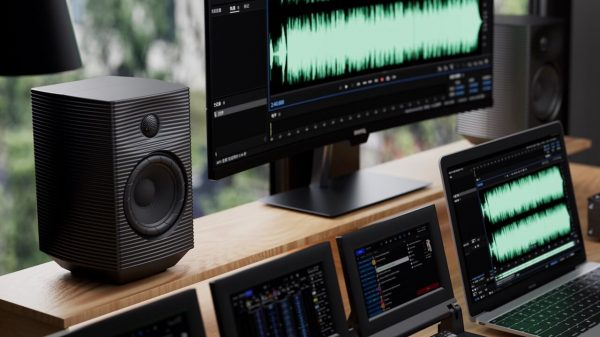Las Vegas, Nev., January 9, 2005 — On day three of the 2005 International CES, congressional leaders and other top public policy and industry officials debated the key policy issues facing the consumer electronics industry during conference sessions, panel discussions and keynote speeches. The 2005 International CES runs January 6-9 in Las Vegas, Nevada.
Hundreds of top executives representing the consumer technology, broadcasting, cable, entertainment and other industries joined more than 140 officials from international, federal and state governments to hear keynote speaker Mike Ramsay, TiVo co-founder, chairman and CEO, at the annual Leaders In Technology dinner held Friday night. Consumer Electronics Association President and CEO, Gary Shapiro opened the dinner thanking the government guests for understanding that digital technology is driving the economy and focusing on this year’s show.
Ramsay took the stage following dinner and emphasized the importance of preserving the entrepreneurial spirit exemplified by companies like TiVo. He suggested there is a specific and limited role for government to play in technology policy, focusing on two specific issues, in particular – intellectual property and separable security for digital cable ready products. Government generally must be cautious in legislating and regulating the technology industry, he said, since overly broad policies may have a chilling effect on innovation. Ramsay also urged the Federal Communications Commission (FCC) action to ensure competition exists in the market for digital cable ready devices.
The third annual Green Saturday at the International CES was full of green gadgets and exciting announcements. The U.S. Environmental Protection Agency (EPA), represented by Assistant Administrator Tom Dunne, selected the 2005 International CES to announce new ENERGY STAR External Power Adapter guidelines. The new guidelines, which apply to power adapters for cell phones, PDAs, digital cameras, camcorders, MP3 players and routers, lay out the framework for developing product that can be labeled with the ENERGY STAR logo. In addition, the EPA recognized leaders in environmentally friendly products and CE product recycling with the E-Cycling Partnership Awards. Award winners included: Cingular, Dell, HP, Intel, JVC, Panasonic, Philips, Pioneer, Sharp and Sony; retailers, Best Buy, E-Bay, Good Guys, Office Depot, Staples and Target; and non-profits and governments, Collective Good Foundation, the City of Portland Oregon and King County Washington.
A new initiative, The Electronics Green Covenant, chose the 2005 International CES to launch its program to show the progress and dedication to the environment by consumer electronics manufacturers. Department of Commerce Assistant Secretary for Technology Policy Benjamin Wu announced that in the next several weeks the department will issue a report outlining issues of concern on end-of-life for CE products. The report will call for coordination among manufacturers, retailers, and other stakeholders in the development of a solution for the environmentally friendly collection, recycling, reuse and disposal of consumer electronics products.
At the Accessorize Now conference session, top level executives from companies including Best Buy, eBay, Kiosko, Jaguar/Land Rover and Superior Communications discussed best practices in customer-centric CE accessories retailing. The panelists argued that retailers need to understand the unique needs of every customer in order to make the most out of sales in the high margin accessories space. Accessories, they agreed, which can significantly enhance the end-user experience and decrease product returns, also give customers a unique opportunity to customize new devices based on their lifestyles. According to Bob Mann, accessory manager for Jaguar/Land Rover, “In order to be successful, we need to qualify the customer, find out what they do, then meet their needs.” Dan Moe, senior vice president at Best Buy, agreed, and added, “Accessories are extremely important to a brand. It’s critical to make sure customers get the right ones for the right product.”
During the super session “International Tech Policy: Who is Leading the Way,” Shapiro moderated a panel of government executives which included:
- Alain Ducass, Chief, Digital Country Planning, Office of the Prime Minister, France
- Ambassador David Gross, U.S. Coordinator for International Communications and Information Policy, U.S. Department of State
- Minister Tamotsu Yamamoto, Parliamentary Secretary, Minister of Internal Affairs and Communications, Japan
Shapiro opened by stating, “This session is symbolic of what the CES is about — an international community.” The discussion covered a range of digital topics including, broadband access and penetration, wireless developments, spectrum allocation, Internet governance, VoIP and digital rights management. Minister Yamamoto provided data describing how Japan has developed the world’s least expensive and highest speed broadband service. He also emphasized that the country has success in these areas because of competition and an open network policy. Ambassador Gross highlighted two main themes that he saw from the International CES floor, broadband and wireless. Ambassador Gross also complimented his colleagues on the panel for how well their countries have worked together on many technology policy issues.
Ducass compared the innovations he was seeing on the International CES floor to the motto of the French Republic, “Liberty, Equality, Fraternity.” Innovations like VoIP, he said, are eliminating the digital divide and making international phone calls cost a fraction of their previous prices. Most importantly, many of the policy issues facing new technologies are international. This is creating a true need for fraternity on a global level, he concluded.
The fate of many of the technologies and innovations seen on the floor of the 2005 International CES may be directly impacted by pressing policy issues. An esteemed panel of Members of Congress gave an insightful overview of some of the high-tech policy issues that will face the 109th Congress. Moderated by Michael Petricone, vice president, technology policy for CEA, the panel included Senator George Allen (R-VA), Congressman Joe Barton (R-TX), Congressman Steve Buyer (R-IN), Congressman Tom Davis (R-VA), Congressman Charles Gonzalez (D-TX), Congressman Jim Moran (D-VA) and Congressman Cliff Stearns (R-FL). The panelists agreed upcoming policies debated in the next Congressional session include: broadband access and the 1996 telecommunication act (whether it should be reformed), how to complete the transition to digital television, spyware, spam, copyright, and stock option issues. Petricone closed the panel by noting, “Technology is adherently disruptive; these peop!
le are defending our rights to innovate.”
Non-stop entertainment, energy and applause dominated The Last Gadget Standing – a Day Three SuperSession that embodied the spirit and enthusiasm of the 2005 International CES. Session MC’s Robin Raskin, sole proprietor of The Internet Mom, and Michael Miller, editor-in-chief of PC Magazine, corralled the audience with a recap of the product selection and voting process, which began on Day One, for the fourth annual Last Gadget Standing contest.
From 32 original products selected by the media, ten products representing four categories (home entertainment, PC and peripherals, personal devices and services and mobility) ended up on the slate after three days of online voting by consumers: Logitech Harmony universal remote, Kodak EasyShare printer dock, Palm One Treo 650, CarChip, Delphi XM2Go MyFi, Dell Axim Pocket PC, Epson PictureMate printer, Orb Networks Orb Media 1.0, Sonos Digital Music System and MobiTV.
Dell Axim stood as the final winner as chosen by online voting, as well as SuperSession attendees’ applause. Previous winners for Last Gadget Standing were TapWave in 2004, Roomba in 2003 and GM’s OnStar in 2002.
For more news on the 2005 International CES during and after the show, visit www.CESweb.org, the interactive source for CES information.
About CEA:
The Consumer Electronics Association (CEA) is the preeminent trade association promoting growth in the consumer technology industry through technology policy, events, research, promotion and the fostering of business and strategic relationships. CEA represents more than 1,850 corporate members involved in the design, development, manufacturing, distribution and integration of audio, video, mobile electronics, wireless and landline communications, information technology, home networking, multimedia and accessory products, as well as related services that are sold through consumer channels. Combined, CEA’s members account for more than $110 billion in annual sales. CEA’s resources are available online at www.CE.org, the definitive source for information about the consumer electronics industry.
CEA also sponsors and manages the International CES — Defining Tomorrow’s Technology. All profits from CES are reinvested into industry services, including technical training and education, industry promotion, engineering standards development, market research and legislative advocacy.


